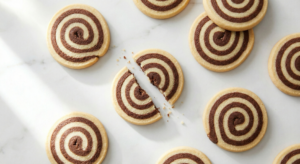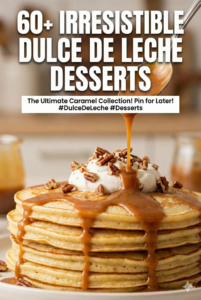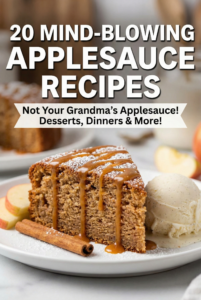Quickles or quick pickles are exactly what they sound like. Pickles that are quickly made. While traditional pickles take weeks to properly pickle, quickles are made in less than an hour.
You can flavour quickles with pickling spices, dill, garlic, mustard, or whatever else you'd like, just like regular pickles. Quickles are great on sandwiches, burgers, pulled pork, fried chicken, Banh Mi, or as a side with ham or charcuterie. In this post, I'll share my Quickle recipe and discuss the main differences between regular pickles and quickles.
Jump to:

Quickle
I really got into quickles as part of my Banh Mi Recipe. I use a combination of carrot, daikon, and cucumber, along with the quick method of making pickles. I then top my Banh Mi with the quick pickles, sriracha mayo, cilantro, roast pork, and sliced fresh cucumber.
That's a sandwich that is hard to beat. No matter what you are planning to use your quickles for, I'm sure you'll be happy with this recipe.
Quickle Brine
Pickle Brine vs. Quickle Brine
Typical pickle brine is a solution of about 5 to 7% salt and anywhere from 1:1 to 1.5:1 vinegar to water. Quickles, on the other hand, typically have a higher salt and vinegar content.
A quickle brine is an 8 to 10% salt solution with a 1.5:1 to 2:1 vinegar content. This higher salt and vinegar content in quickles is because the vegetables have less time to reach an equilibrium with the solution. Essentially, they need to absorb as much flavour as possible in as little time as possible.
What Types of Vinegar Can You Use?
You can make quickles with any vinegar you'd like. I prefer either cider vinegar or white wine vinegar, but red wine, rice, or balsamic vinegar will work. However, if using balsamic vinegar, remove some of the sugar from the recipe because the vinegar is already sweet.
What Salt Should You Use?
To make Quickles or any pickle, you want to use pickling salt or kosher salt. Both of these can be found at any grocery store. Do not use table salt because it has iodine in it, which will give the Quickles a harsh flavour.
How Long Will Quickles Last?
In a sealed container, quickles should last about two to four weeks in the fridge. If they start to smell off, or if mould forms on the surface, discard them. Ideally, you shouldn't make more quickles than you will use in a week or so.
Making The Quickle Brine
To make the Quickle brine get a medium pot and add the vinegar, water, salt, and sugar. Bring the brine to a boil over high heat, stirring to ensure the salt and sugar dissolve.
Once the brine comes to a boil, pour it over your vegetables. For crunchy Quickles, cool the brine in the fridge before adding the vegetables. The trade-off for this method is that the vegetables will have a less briny flavour.






Prepping Quickle Vegetables
Vegetables for Quickles should be cut thin. Otherwise, they won't absorb any flavour. 2 to 3 mm is the perfect range. If you add hot brine to the vegetables, you can cut them a bit thicker.
The vegetables I used were cucumber, carrot, onion, and watermelon radish. Other vegetables you can use include:
- Cauliflower
- Daikon
- Asparagus
- Green beans
- Beets
Essentially, if you can make regular pickles out of it, you can use it to make quick pickles. So, slice the vegetables and put them in a clean jar or container. When making Quickles, you don't have to worry about sterilizing the container as you would for regular pickles because the risk of contamination is low to non-existent.




Finishing The Quickles
To finish the Quickles, pour the hot or cold brine over the vegetables, cover them, and cool them to room temperature.
Cold brine method: Cover the Quickles and put them in the fridge for at least an hour before use.
Hot brine method: The quickles are ready to use once the brine cools to room temperature.
After they're cool, store the quick pickles in the fridge. These are perfect for topping a Chicken Salad Sandwich or serving alongside a Curried Cucumber Salad.





The Wrap Up
I love these quick pickles for many reasons, but mainly because of how versatile they are and how quick they are to make. If I want to make a Banh Mi Sandwich, I can make a fresh batch of Quickles and have them ready in less than an hour. You can't beat that.
I suggest that you experiment with this recipe and make it your own. The world is your oyster when it comes to making Quickles.
Frequently Asked Questions
What Types of Vinegar Can You Use for Quickles?
You can make quickles with any vinegar you'd like. Cider vinegar or white wine vinegar work well, but red wine, rice, or balsamic vinegar will also work. If using balsamic vinegar, remove some of the sugar from the recipe because the vinegar is already sweet.
What Salt Should You Use for Quickles?
To make Quickles or any pickle, you want to use pickling salt or kosher salt. Do not use table salt because it has iodine in it, which will give the Quickles a harsh flavour.
How Long Will Quickles Last?
In a sealed container, quickles should last about two to four weeks in the fridge. If they start to smell off, or if mould forms on the surface, discard them. Ideally, you shouldn't make more quickles than you will use in a week or so.
Recipe

Ingredients
- ½ cup white wine vinegar
- ¼ cup water
- 1 tablespoon sugar
- 1 tablespoon salt
- 1 cup carrot, sliced
- ¼ cup radish, sliced
- ¼ cup onion, sliced
- 1 cup cucumber, sliced
Instructions
- Put all of the vegetables in a medium heat-proof dish or jar.
- Put the vinegar, water, sugar, and salt in a medium pot and bring to a boil. Boil for 2 minute.
- Pour the boiling liquid over the vegetables. Then push the vegetables down with a spoon so they are completely submerged in the pickling liquid.
- Cover the dish tightly with plastic wrap and let it sit at room temperature for 30 minutes. The quickles (quick pickles) are now ready to use.
- Store the pickles in the fridge for up to two weeks.





Leave a Reply